The 5.30am alarm stung, and I could have done without cycling through the dark of the October night tinged with dampness and Yorkshire chill for the 6.45am meet, as well as the twelve hour round trip on a bus. But the sense of being involved in something huge grew stronger by the hour; by the time we were tangled up in the inevitable traffic of sprawling London, no one could stay in their seat. As we crawled and lurched agonisingly forward, sandwiched in on all sides by cars and black cabbies, with scooters twisting smugly in and out of the gridlock, members of our group were displaying their cardboard signs in the back windows, pulling flags around their shoulders, talking nineteen to the dozen. Impatience was fermenting into adrenaline, and adrenaline was running extremely high.
I will never forget the jolt of catching my first glimpse of a group of fellow protestors. It was a family of four, perfectly ordinary, especially in comparison to the fantastically eclectic jumble of shops and restaurants of Edgware Road behind them. But somehow seeing blue T-shirts and banners decorated with golden stars, in the heart of the capital of the country that in the eyes of the international media is essentially synonymous with Brexit, with negotiation tables of people in suits, with messages of how awful everything is going to be, was almost a shock. And over the course of the day it became appallingly clear to me that the mainstream media has largely failed to paint an accurate picture of British politics today from the people’s perspective.
The Guardian indicates that over 100 “Leave” constituencies have switched to “Remain” but not only is this information conveniently omitted elsewhere, there is also astonishingly little coverage of the campaigners giving up their Sundays and lunch hours and evenings, making phone calls, collecting signatures, writing letters, organising meetings, to make this shift in attitudes happen, and we are being led to forget that millions of ordinary people believe in European values and stand by their view that EU membership is right for the UK.
The traffic was hardly moving and our group leader talked the driver into letting us continue on foot; we were anyway extremely close. Clattering down on to the busy pavement drenched in bright autumn sunshine, we made tracks for Marble Arch.
This issue has brought me to tears more often since and including the 24th June 2016 than I would care to admit, and it inevitably did again yesterday. The first sight of the scale of the event…the crowds filling Park Lane and far beyond and making a din to be heard far and wide…a sea of people who had mostly never met before and would probably never meet again, but brought together by the same belief that I too feel extremely deeply…it was enough to set me off. Which is silly, because I should get a grip. But yesterday the tears fell for a different reason. It was a wonderful affirmation that the thirty-odd other people on the coach and my handful of concerned expat friends and I are far from alone.
Most demonstrations are against something. Some are for. The People’s Vote march held an element of paradox of being both. Against the hypocrisy of the Conservative government and the way it is abusing its mandate to drive the country down a road it never chose. But for a vote giving the country another chance to have its say and asking its opinion on the final deal, and more broadly, a flag-waving flurry of support of the European Union’s work. The overall vibe was resoundingly positive, mirrored by the peaceful atmosphere of the day; despite 700,000 people marching at the same time, no one was hurt, no one pushed, and, in classic British style, no one skipped queues and everyone apologised excessively for getting in each other’s way.
As someone who has spent a significant proportion of their adult life working abroad and hopes to do so again the future, I have an extremely strong vested personal interest in not having my rights as a European citizen wiped from the slate by a cloth clung on to by Theresa May. But lots of these people were not directly interested in living, working or studying abroad. Most of them were not between 20 and 30 and worried about the impact on the planned international career path. Most of them were simply people worried about the future and well-being of their country and fellow citizens, travelling from miles around to turn out in their hundreds of thousands to stand up for what they believe is right; to do their moral and civic duty and call into question the behaviour of a government at a time when they feel they should, for the sake of justice and truth. Young, middle-aged, senior, from a huge variety of ethnic and socio-economic backgrounds, able-bodied and in wheelchairs, sporting accents from all around the UK and further afield…it was extremely humbling to march with such diverse and dedicated humans.
And hats off to everyone who had made a sign. They ranged from the serious, well-placed value judgements on society (“If a democracy can no longer change its mind, it ceases to be a democracy”); to statistics powerful in their simplicity (“2016 – 48%, 2019 - ?”); to well-researched lists of twenty different sorts of costs associated with leaving the EU; to hints at British unwillingness to protest (“I’m British. I’m on a march. Things must be bad”); to criticism aimed at various political figures, varying from sophisticated to unprintable; to simple statements that perfectly resumed the absurdity of the situation (“I made this sign instead of screaming”); to signs with poignant messages given to children far too young to grasp their significance (“I don’t get a say but I’ll have to pay”, “I gave up my third birthday party to be here today”); to buh-dum-dum-chssssh EU puns (“I can’t live without EU”); to made-up charts which were simply brilliant.
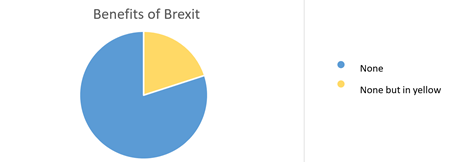
Almost everything I read hit the spot; so much of it would be hilarious were it not so painfully true. It was also a reminder that whatever happens in politics, we Brits refuse to give up on our spectacularly odd sense of humour; understated, self-deprecating, and positively dripping with irony.
These elements are possibly best captured, in reference to the threat of our regulation being weakened to allow American hormone-treated beef and chlorinated chicken to enter the UK market, by the following slur:
And for the first time since coming back to this country, I felt some peace with the nationality on my passport.
For the first time since June 2016, it was a good day to be British.
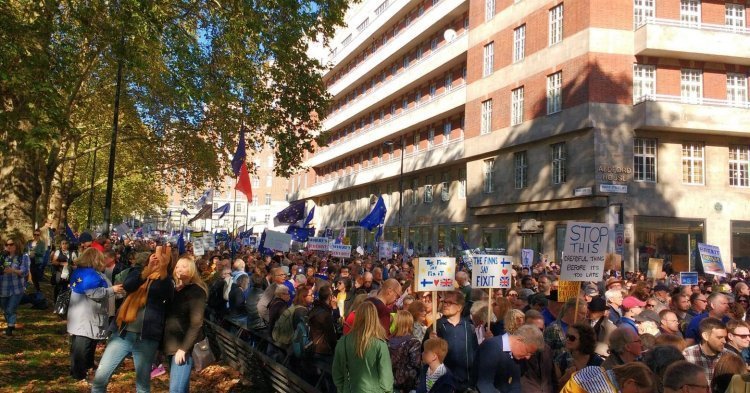
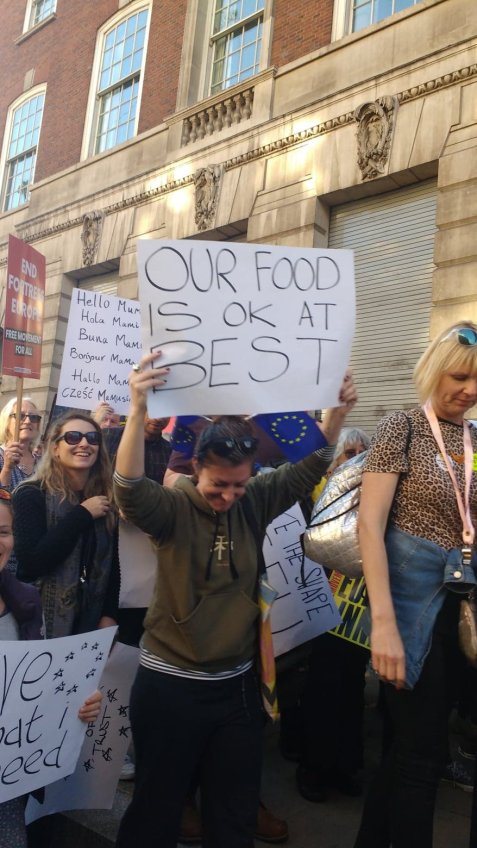



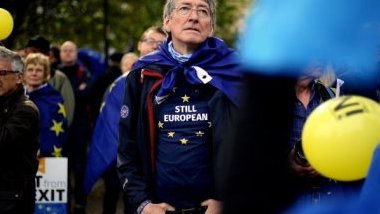

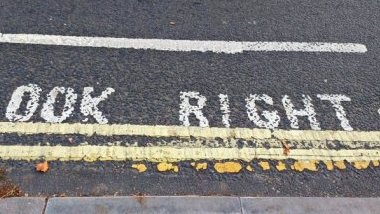
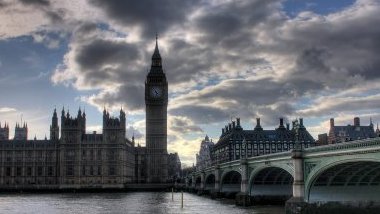
1. On 22 October 2018 at 23:09, by Ian Dawson Replying to: My country is having an identity crisis. So am I. Part 2: The People’s Vote march
Replying to: My country is having an identity crisis. So am I. Part 2: The People’s Vote march
Absolutely, I felt the same way. It was a wonderful day and it was great to see so many older people there too, protesting against this populist coup. Good article!
Whatever happens with Brexit (and I still hope it doesn’t happen), we will always have that beautiful sunny day of comradeship and positivity. That people would like to tear this warm, friendly community apart - and a few tried on the day - speaks volumes about the true nature of Brexit.
Follow the comments: |
|
